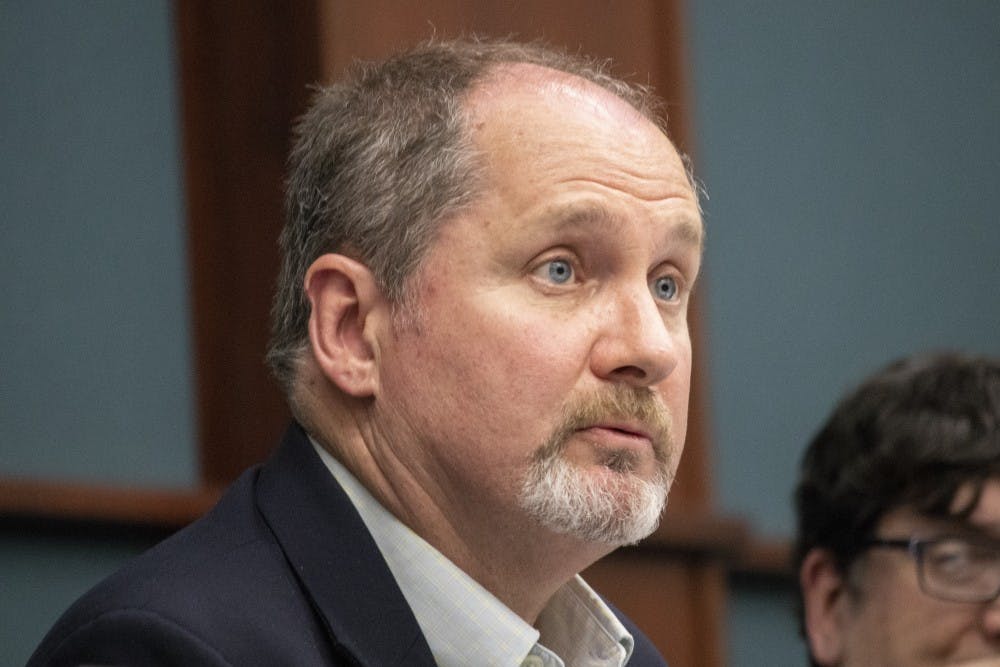Bloomington’s Unified Development Ordinance was the main topic of conversation at Wednesday night’s city council meeting, along with a presentation on how Bloomington can cut back on its carbon footprint.
A presentation by Alex Crowley with the Department of Economics and Sustainable Development started the meeting. Crowley spoke about Bloomington’s carbon footprint, which was found to be on the higher end of cities in America.
“Climate change is not some distant and abstract issue for us,” Crowley said.
Bloomington adopted in October 2018 the Sustainability Action Plan, a five-year proposal that lays out specific steps the community can take to prevent climate change.
The goal of the plan is to reduce greenhouse gas by 11% in Bloomington by 2023. The plan discussed how transportation, waste, water, ecosystem help and city operations can all decrease the city’s carbon footprint.
The council then discussed two chapters of the UDO. The UDO contains all of the land use and development regulations that apply to construction in the city. The Plan Commission voted 9-0 on Sept. 23 to recommend adoption of an amended UDO to the common council. The purpose of Wednesday night’s meeting was to discuss how the UDO could be amended.
Chapter one laid out the standards for duplex, triplex and fourplex homes that developers want to build in Bloomington. Chapter two talked about how and where developers want to put this type of housing in response to the growing student population in Bloomington.
Many members of the public were opposed to such complexes being built in Bloomington. One woman stated she was afriad that all non-students will eventually have to move out of downtown Bloomington.
“The university was eating away at Bloomington,” council member Chris Sturbaum said. “Single families only stopped that from happening because they encouraged ownership. If this turns everything into rental, you’re now bidding against that to be a homeowner.”
Another concern was building too many large apartment complexes will destroy historic parts of Bloomington, and it will become a renters-only area.
“We need to protect what exists that is working in Bloomington,” council president Dave Rollo said.
Council member Stephen Volan had a different view on the student housing situation.
“Non-students don’t want student housing anywhere,” he said. “I would urge everyone to maybe start seeing students as, you know, people.”
The council recessed until their next meeting at 6 p.m. Oct. 22, in City Hall, where chapter 3 of the UDO, titled “Use Regulations,” will be discussed.




